
The Pigeon Palace, 2840-2848 Folsom in San Francisco, with a lively demo during the final open house on May 6, 2015.
As you can see from the previous entry, we are up against it here at the Pigeon Palace, my home since 2004. In fact, the tidal wave of speculation and displacement crashing over the Mission District right now seems to be accelerating, perhaps due to the common sense feeling that this bubble is about to pop. Housing prices, whether rents or mortgages, have soared to simply absurd heights, far removed from any comparable rise in what people earn. One possible buyer of our building has the intent to refurbish the two empty units and rent them for $6,000 each, assuming they can stuff four tech workers in each apartment at $1,500 per person… it’s disgusting, it’s insane, but as all admit, at this point they probably can get it.
The building last sold for $12,000 in 1946, and now it will sell for close to $3 million. But there’s no reason for it, only the “professional” commitment to “maximizing asset values” by the lawyers and social workers who are running the show. They could easily meet their responsibilities to care for our landlady for the rest of her life AND live up to her lifelong practice of keeping her building affordable by accepting the original offer of $2 million by the San Francisco Community Land Trust. But they opened it to everyone and this past Thursday accepted the current high bid of $2.5 million. Now the price has to be certified in probate court (even though our landlady is still alive), after which an open bidding process will ensue. The Land Trust is still in the running, but it’s not looking good.
A lot of sincere people—activists and observers—attribute the crazy cost of housing to the insatiable greed of landlords, speculators, and bankers. No doubt some of those characters are personally greedy. But greed is an insufficient explanation for this broad structural reorganization of profit-making, where each of us is tightly bound to make a monthly contribution to balance sheets and bank accounts that steadily enrich a rarified elite who are already incomprehensibly wealthy. Pro-business propaganda emanating from every media frame all problems in terms of individuals and undermine shared understandings of shared predicaments. In our neoliberal world, all problems are solved by individual striving and success, not by shared community action or changing government policy. Getting rich, buying property, and joining the lucky winners who have ridden the surge of housing values, has a powerful hold on the imaginations of many people. There are few other paths available to the average person to move up and out of their station in life. But using one’s home as an “investment strategy” has proven to be an unreliable path to riches, and instead has led to millions of foreclosures and evictions and ever-more expensive housing.
Countless others have been denied access to the fake comfort of home ownership by racial discrimination or their lack of credit or resources. Others who once thought they were on the housing wealth elevator found out that they had simply agreed to be bound by unpayable debts. Whether self-described as “middle class” or working class, a growing majority of the population in San Francisco (and everywhere really) are finding their hold on housing and material comfort growing less solid, more tenuous. Fear of falling into poverty, even falling into the streets, stalks everyone from fast-food workers to school teachers, office workers to waiters. Artists, musicians, and writers, once the heart and soul of San Francisco’s culture, are finding it difficult to even hold on to the distant shores of the East Bay.
Gallingly, those of us who still have reasonable rents and enjoy rent control find ourselves being scolded for having “unfairly” low rents! Amazing. Thanks to our longevity, good fortune at finding landlords who weren’t bent on gouging their tenants, and rent control, we pay prices that are still commensurate with our income. As my landlady said to me when she rented me this apartment in 2004 for $875, “I know I could get $1,500 (she could’ve gotten $2,500 easily), but I don’t want to choke anybody.” She was old-school San Francisco, owning her property for decades and never imagining her apartment building as a cash machine. It was once considered normal to pay no more than 30% of one’s income for housing, and preferably less. Nowadays it is all too common to pay 50-75% of income for housing.
Other tenants, especially those recently arrived in San Francisco and who face well over $1,000 per person rental rates, too often accept that there is something rational and fair about these unsustainable prices. Sure, some tech workers enjoying high wages trickling out of the torrent of venture capital pouring into countless app developers, or the advertising revenues that Google and Facebook’s ubiquitous portals command, can pay these rents for now. But when the current tech bubble pops and the money stops, which can’t happen soon enough for long-time residents, they’ll be decamping from the Bay Area and those rents ought to return to a level that people who earn less than $100,000/year might be able to afford.

Carin McKay and Chris Carlsson giving a rap about the Pigeon Palace at the City Hall protest May 8, 2015. Photo by Steve Rhodes.
The banking crisis of 2008 was not solved, it was simply rolled over and kicked down the road. Evidently there is not enough profit being produced to support the fragile pyramid of promises built by banks on obscure financial manipulations they call “investments.” Debt both feeds and chokes an economy based on fear and coercion imposed by banks, insurance companies and other financial giants. Fueled by interest-free government loans, banks, investment companies, and millionaire speculators push housing prices ever higher while snapping up thousands of foreclosed properties. Banks have always been the real owners of the heavily mortgaged houses “homeowners” live in. Now large corporations and millionaires own a big percentage of the country’s rental housing as well.
Whether you pay your mortgage or your rent, the monthly hit is ever larger. With every passing month we send more and more of our wealth to the already rich. They’ve gamed the system; they act with impunity. Banks are organized crime backed up by the government. Housing is the spigot that finances everything. Whether you work steadily or precariously you are bound to pay for housing month after month. However income is derived, most of it is siphoned off into the banking and real estate industries while desperation and poverty keep growing.

In City Hall rotunda, over a thousand gathered to demand a halt to evictions, a ban on further luxury housing construction, in particular the Plaza16 proposal, and the immediate commitment of millions per year to stabilize the Mission and provide affordable housing to all who need it, esp. those at 30% or below median income.
Realizing that paying for housing is more than any other mechanism the means by which wealth is transferred from the broad population to the tiny elite, I thought back on the years I spent helping to produce Processed World magazine (1981-1994, 2001-04). It was a magazine focused on the misery of wage-labor; every issue featured at least one “Tale of Toil” and usually two or three. In addition, hundreds of letters poured into our mailbox during the 1980s excitedly connecting with our “bad attitude” and sharing their own stories of dumb work, coercive workplaces, surveillance, harassment, ecological devastation, and a subterranean but widely held disdain for modern work life. We published many of those letters in the vibrant letters section of the magazine. As the years went on different people passed through the editorial collective, and sometimes I’d meet people who had once been avid participants or correspondents and had sort of disappeared. Typically, they would sheepishly admit that they’d found a job they liked, and couldn’t relate to our project anymore, since it seemed to be predicated on hating your job.
Clearly few people can stay at a job that makes them miserable, IF they have a choice. And for lots of white collar workers, whether clerical or technical or academic, for most of the late 20th century it wasn’t that hard to leave one place and find work somewhere else. Processed World tapped that reality and as early as the second issue in 1981 already wrote about the “rise of the 6-month worker” which was both an affirmative escape from the banality and pointlessness of most jobs, and a premonition of the precarity that would eventually overtake a large portion of the working class (and as many have pointed out, that same precarity was a common reality in most of the world for most of the proletarianized for most of capitalist history). Our focus during those years was on the great public secret called “work”—the activity that still occupies far too much of life and goes largely unexamined.
The arrival of the worldwide web, cellular telecommunications, wifi, and broadband has allowed individuals to be on call 24/7, with or without a salary. Countless millions live tethered to their cellphones, hoping for that email or text or call that will put them to work for hours, days, or weeks. The much-promoted “sharing” economy represents an intensification of this precarious, intermittent, and unreliable structure of income earning—whether driving your car for Uber or Lyft, or working for a caterer on call, doing contract programming, or working underground in the drug or sex trades.

This “stop the evictions” banner was seized by police within minutes of its unfurling, as were the other banners dropped around “our” City Hall… go figure!
The “bad attitude” we were so committed to during the 1980s, which helped like-minded workers find each other in disparate workplaces and communicate horizontally across space and activity, was essentially outflanked by the demise of steady employment. To snag one of the precarious income streams available in the “new economy” a key criteria is the enthusiasm and self-sacrifice one offers to prospective buyers. Any hint of an “attitude problem” can land a person outside of employability in a big hurry, especially with the self-inflicted surveillance encouraged by social media.
For many of us who refuse to conform to this pernicious reality, opportunities have steadily narrowed. The ability to “drop out” and escape the coercive logic that ensnares us is precluded by the stunning and relentless rise in the cost of housing. A new house costs 1050% more in 2006 than it did in 1970 (and has probably gone up another 10-20% since 2006!). During the same period, median household income went up only 452% (and that doesn’t account for the fact that this number is severely skewed upwards by the accumulation of wealth at the very top), so taken at face value, there has been a rise of 600% in the cost of housing versus what people actually earn. Rents in San Francisco have risen even faster and further than that during the same period. I arrived in 1978 and split a large one-bedroom at Haight and Cole and my half of the rent was $125/month. Today that same one-bedroom apartment is probably renting for over $3,000/month, making the roommate’s share at least $1500/mo.!
It has never been more urgent to formulate and pursue a radical break with the regime of private property. It may also be true that it has never felt more distant and impossible to attack this pillar of American society.
Deindustrialization and globalization, fueled by the dramatic financialization of the economy during the past generation or two, has led us to this dark situation. Homes where we live, which should be an undisputed human right, are instead seen as commodities to be bought and sold in an endless marketplace of supply and demand. But playing with the loaded dice we’re given as renters or home buyers has no resemblance to a free market. The gaming of the system by the big financial players is equivalent to the operations at the casinos that have also proliferated in these past decades. The “house” always wins. The odds are completely stacked in their favor, they own the buildings and the tables, and they set the rules by which you are allowed to “play.” Stories about friends or family cashing out their homes for great profits are like the widely publicized stories of those few people who actually win lotteries. Yes it happens. No it won’t happen to you!
Our dependence on housing organized into a speculative market dominated by millionaires and large companies ensures that we will keep scrambling to get money however we can, no matter how stupid or pernicious or ecologically damaging or pointless the work. We are less able to ask why, to challenge the organization of life, when we are working all the time, and when our work is grindingly stressful, heavily surveilled, and measured to the second. For those of us lucky enough to still enjoy some version of self-employment, that abusive control is absent, but the larger whip-hand of financial need, usually strongly reinforced by the monthly housing payment, keeps us conforming to the whims of clients and the demands of contract employers, no matter how petty, degrading, and insulting those may be.

Mission District protesters jammed the corridors of City Hall, demanding action from city supervisors and the Mayor.

After several loops the demonstration settled in front of Mayor Lee’s locked office. He never made an appearance… the one-time tenant activist and now tech-booster and virtual Neoliberal couldn’t even be bothered to meet with Mission activists who came to his door… moreover, the police and sheriff had closed the steps outside to protests with barricades and narrowed entrance to small paths through orange cones… an unusual welcome to get at “our” City Hall, to say the least.
I guess our focus on the untold story of what work is actually like in Processed World made sense then, and probably still makes sense today. But the larger web of coercion and control held together by the ratcheting up of housing costs needs better analysis, and a more comprehensive and philosophical opposition. Private property is the basic building block of capitalist society. We will not get justice, equity, or a comfortable life as long as we pin our hopes on getting “our own” piece of property. The abolition of private property is the key to unleashing our potential, our capacity for joy, our untapped creative possibilities. Along with that, all debts should be abolished! It’s long past time to break the hold of the wealthy over future life by ending their claims (through debt) to the wealth we produce together going forward.
Taxing the rich might be a halting first step, but given the priorities of the wealthy and their free use of state terror via police and military, I think we have to focus our efforts on a deeper rejection of this world. We together have produced the complex technologies and urban environments we live in and depend on. It’s time we appropriated that collectively produced wealth and make sure everyone has a fair share of it, starting with basic guarantees to housing, transit, communications, health care, food, and so on. A good life for every single person is not only possible, it’s urgently necessary! But we’ll never get there if we keep letting the people who have rigged the system to maintain their wealth and power control the rules, the government policies, and the assumptions we share about how the world is made day in and day out. Our effort to get the Pigeon Palace off the market forever through its purchase and incorporation into the Land Trust model is a very tiny step that may save our homes, and may help inspire more people to organize to get their buildings out of the market forever. But we really have to go much further!















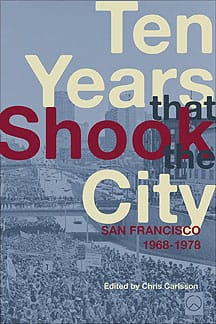

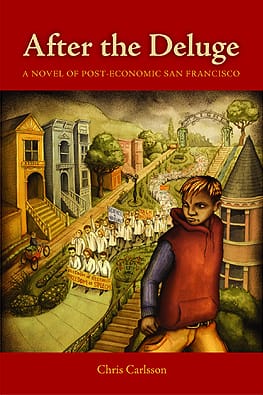
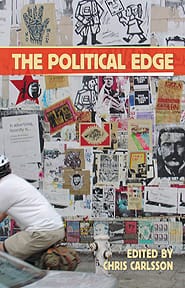
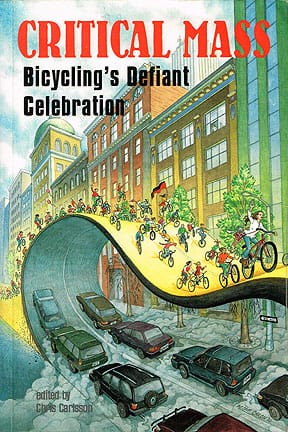

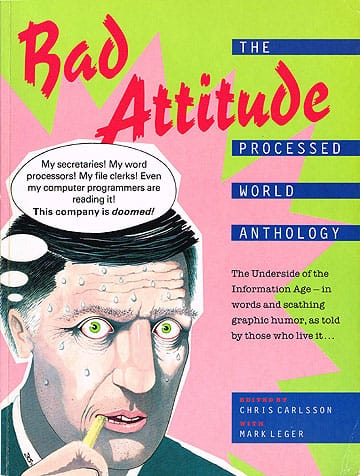

Leave a Reply